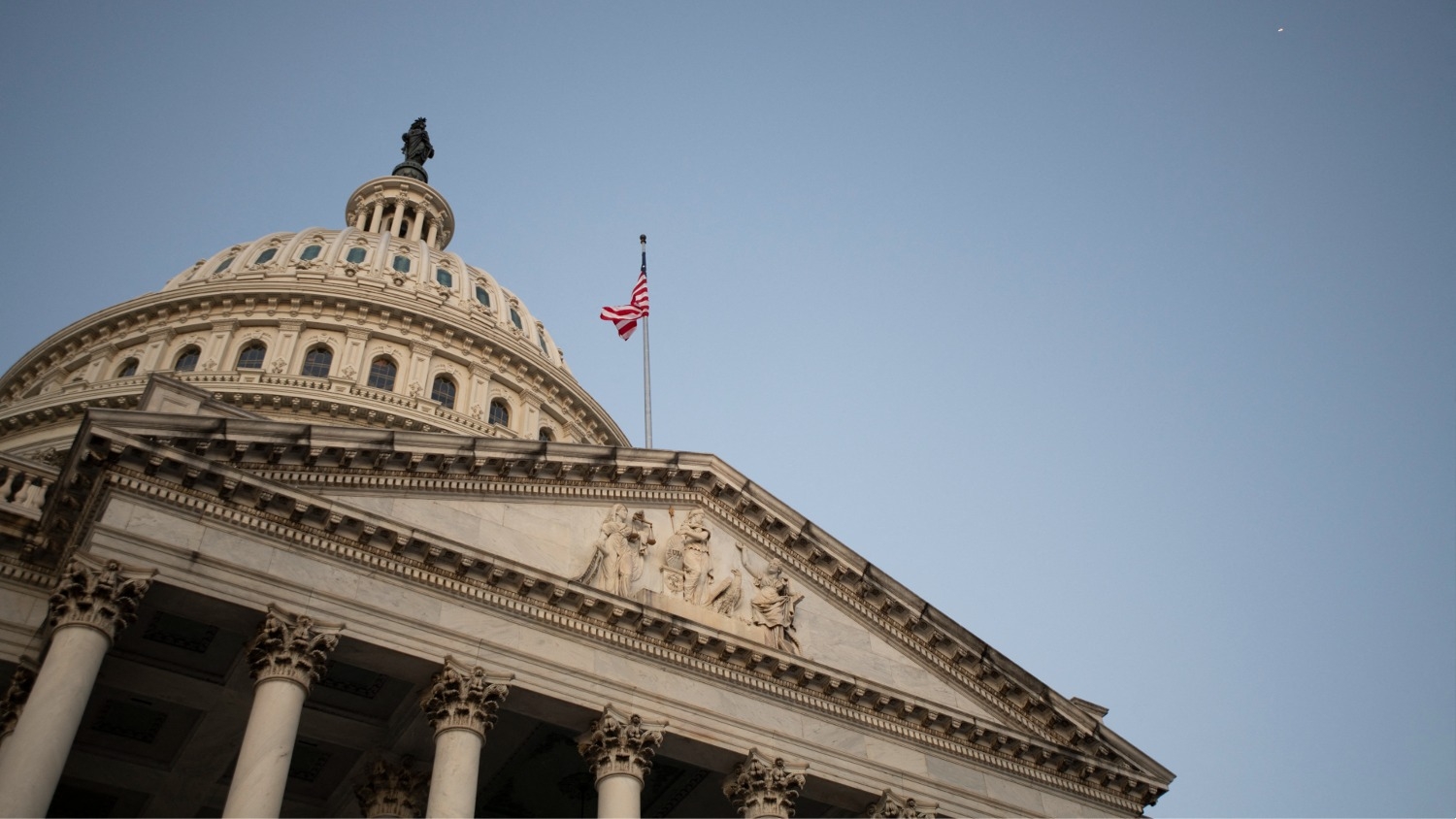House passes US defence spending bill, cuts amendments on reducing military footprint

The US House of Representatives passed its version of a nearly $900bn defence spending and policy bill on Friday, tossing out several amendments aimed at reining in the massive levels of defence spending and restricting arms sales to human rights violators and reducing military presence in the Middle East.
The stage is now set for a potential showdown, as the Senate will debate its own version of the bill later this month.
The fiscal 2024 National Defense Authorization Act (NDAA) sets policy for the Pentagon and authorises a record $886bn in spending, and was approved on a slim margin of 219-210.
Congresswoman Barbara Lee's amendment, which sought to repeal the 1991 and 2002 authorisations for the use of military force (AUMF) for Iraq, did not make it to the final version of the bill.
New MEE newsletter: Jerusalem Dispatch
Sign up to get the latest insights and analysis on Israel-Palestine, alongside Turkey Unpacked and other MEE newsletters
Anti-war groups and progressive lawmakers say they hope that repealing the AUMFs would rein in the White House's war powers, increase congressional oversight and make military conflict less likely. However, without being included in the NDAA, they would have to repeal them through a stand-alone bill.
Another amendment that didn't make it was introduced by Congressman Jamaal Bowman, and sought to withdraw all US troops from Syria. Bowman has sought to reduce the American military presence in Syria since 2021, following President Joe Biden's decision to withdraw the US military from Afghanistan.
There were also several failed amendments focused on Israel and its treatment of Palestinians. Congresswoman Cori Bush tried including an amendment that would bar US funds from being used in the annexation of the occupied West Bank, and Congressman Jim McGovern attempted to include a measure that would have required a report on Israeli settler activity in the West Bank.
Still, while the amendments did not make it to the final version of the House bill, a number of the amendments regarding reducing military spending and intervention abroad received bipartisan support in Congress.
One such amendment was introduced by Democratic Congresswoman Ilhan Omar and would have banned the Biden administration from delivering cluster munitions to Ukraine. The amendment received support from Florida Republicans Matt Gaetz and Paulina Luna.
The Senate is expected to pass its version of the defence spending bill later this month, which will then take the bill to the House-Senate "conference" to negotiate a compromise bill that would come up for a vote later this year.
The NDAA is one of the only major pieces of legislation Congress passes annually and is closely watched by a broad swath of industry and other interest groups because it determines everything from purchases of ships and aircraft to pay increases for soldiers and how to address geopolitical threats.
At the same time, it is also watched by a number of progressive and anti-war groups who try each year to rein in the Pentagon's budget and introduce measures to curb the US military footprint abroad.
Middle East Eye delivers independent and unrivalled coverage and analysis of the Middle East, North Africa and beyond. To learn more about republishing this content and the associated fees, please fill out this form. More about MEE can be found here.





